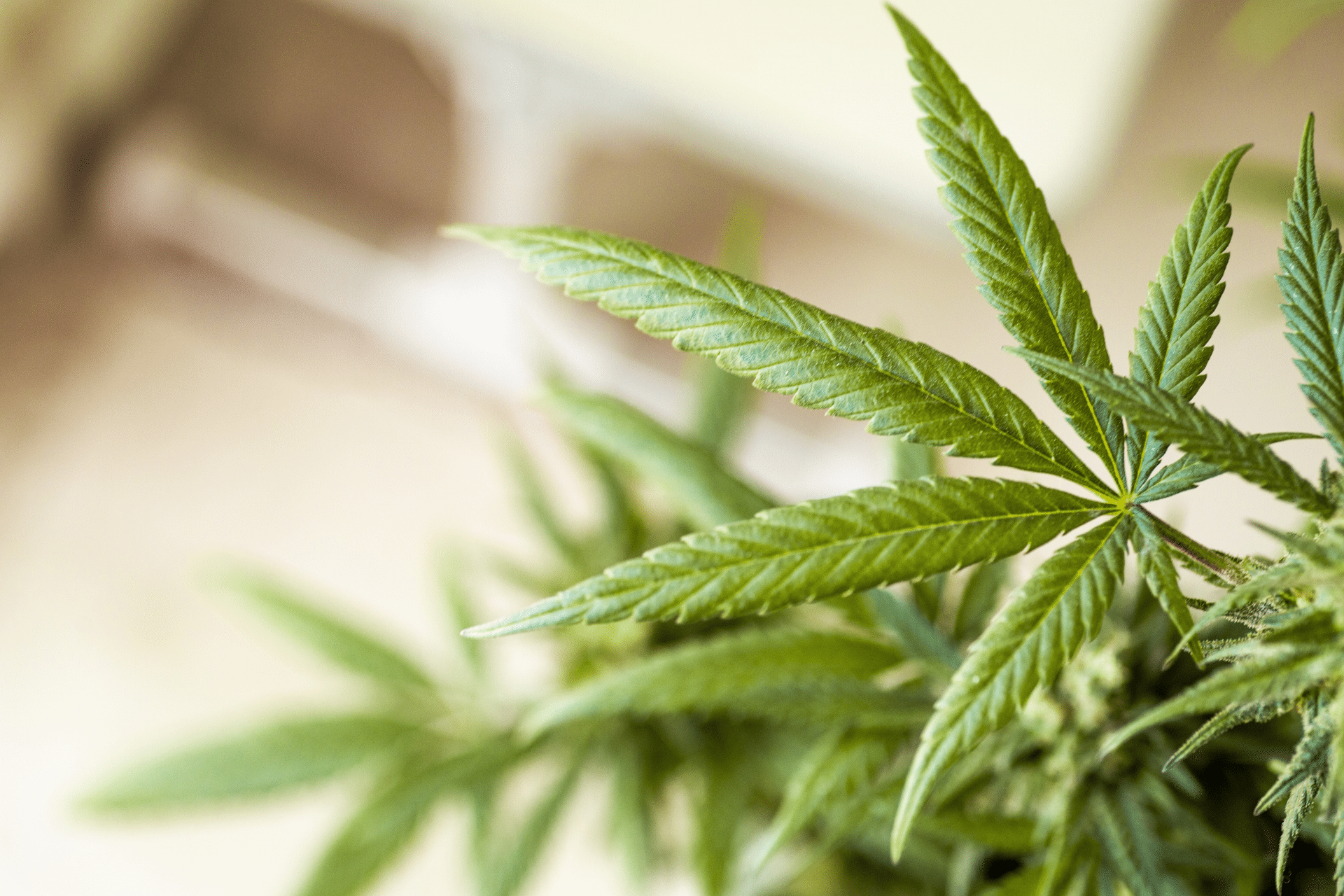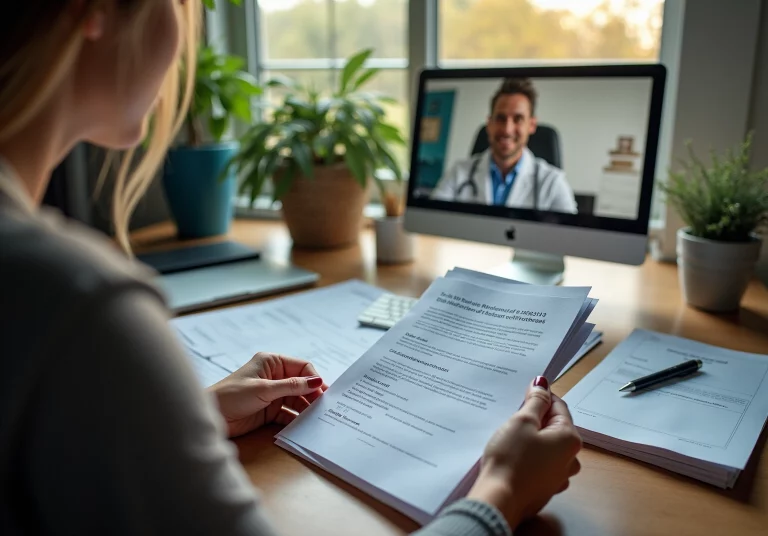How Medical Marijuana and CBD Affect Post-Traumatic Stress Disorder (PTSD)
by Haley Mills · December 23, 2022
If you or someone you love suffers from PTSD, medical marijuana may be a helpful treatment option. Learn more about how cannabis can help ease symptoms of PTSD.

If you or someone you love suffers from PTSD, medical marijuana may be a helpful treatment option. Learn more about how cannabis can help ease symptoms of PTSD.
What is PTSD?
Post-traumatic stress disorder (PTSD) is a disorder that develops in some people who have experienced a severely shocking or dangerous event. It is typically a devastating condition that can lead to other mental illnesses if left untreated.
Is PTSD a type of anxiety?
Yes. According to the Anxiety & Depression Association of America (ADAA), most people with PTSD can recover with treatment and possibly anti-anxiety medications. However, people with post-traumatic stress disorder can continue to feel severely depressed and anxious for a significant period following the event.
Women are twice as likely to have post-traumatic stress disorder as men. It is also common among children who have gone through a traumatic experience.
PTSD often enhances depression, substance abuse, or anxiety disorder. Treatments other than anti-anxiety drugs include group therapy, cognitive processing therapy, acupuncture, hypnosis, and more. Medical cannabis can also be a convenient and effective method to eliminate trauma memories if you live in a legal state.
What is Anxiety?
Anxiety is the most common mental disorder in the United States, affecting approximately forty million adults nationwide. Anxiety is a relatively treatable condition; however, only around thirty-seven percent of patients seek treatment. Anxiety disorders, including social phobia, stem from inherited traits, brain structures that affect the fear response, life events, and environmental factors.
There are many anxiety disorder symptoms, and the frequency of their occurrence depends upon the person and whether they have attempted a potential treatment option. The symptoms of social anxiety can be broken down into three categories: physical, cognitive, and behavioral effects.
Below, we provide examples of the signs and symptoms of Social Anxiety Disorder:
Physical effects– nausea, rapid heartbeat, sweating, flushing, shaky, dizziness, light-headed, chronic pain
Cognitive effects include feeling out of control, high stress, self-consciousness, paranoia, and unsettled or overwhelmed.
Behavioral effects include:
- Difficulty managing pressure.
- Avoiding eye contact.
- Fear of social interaction with strangers or any other unknown social situations.
- Making impulsive or irrational decisions.
- Anxiety-induced panic disorder and subsequent panic attacks.
- Freezing during public speaking.
Types of Anxiety
Five main types of anxiety include:
- Generalized Anxiety Disorder is characterized by chronic stress, tension, and worry when there is little or nothing to provoke it.
- Obsessive-Compulsive disorder is characterized by recurrent and unwanted thoughts or obsessions and repetitive behaviors or compulsions.
- Panic Disorder is caused by unexpected or repeated episodes of intense fear and other physical symptoms, such as chest tightness, racing heart rate, or gastrointestinal issues.
- Post-Traumatic Stress Disorder is a trauma-related anxiety that occurs after someone is exposed to a traumatic event in which physical or emotional harm occurred or was threatened. This includes sexual assault, military combat, vehicle accidents, and anything that causes substantial traumatic memories.
- Social anxiety disorder, or social phobia, causes an intense fear of being evaluated or judged by others in social settings. This persistent fear can affect daily life, including work, school, friends, family, errands, doctor visits, and more. Although it can feel beyond control, social anxiety and other anxiety disorders are treatable. It is the most common type of anxiety disorder. If treatment isn’t pursued, it could lead to disruptions in everyday life and, in severe cases, result in alcohol and cannabis dependence as a coping mechanism.
Group Support Therapy
Group therapy allows a person with PTSD to learn social skills from others going through similar situations in a safe space. Participating in group activities with other people with anxiety, obsessive-compulsive disorder, or other mental disorder can make one feel less alone and more understood.
Cognitive Behavior Therapy
Cognitive-behavioral therapy, or talk therapy, is the most common type for those with anxiety disorders. During talk therapy, the patient with PTSD disorder will meet regularly with a therapist to self-report measures of behaviors, emotions, and thoughts during everyday life.
This will encourage and assist the individual in recognizing and addressing intrusive, harmful, or false ideas to help treat PTSD patients. In time, cognitive behavior therapy can change thought patterns and help the patient see things more positively.
Alternative Therapy
This category includes yoga, meditation, exercise, and acupuncture. These holistic therapies are popular for people looking to increase blood flow, change their lifestyles and build healthier habits. For some, they can assist in treating PTSD.
Some alternative solutions combined with medication, therapy, or medical marijuana could successfully result in a significant decrease in anxiety and build a healthy, happy, and productive lifestyle.
What are the symptoms of PTSD?
Many people may have PTSD at any life stage. Its symptoms can include the following:
- Repeating intrusive memories, dreams, and thoughts correlated with a frightening event.
- Evading people, situations, or places that bring back a memory of a traumatic event.
- Unwanted feelings of agitation, anxiety, or insomnia.
- Mood disruptions may include depression, impaired cognitive abilities, low self-esteem, or a desire to be social.
- Considering these symptoms, PTSD patients find it hard to function well in society while maintaining relationships. These patients are also exposed to higher suicide risk among elderly populations.
What are the Risk Factors for PTSD?
People with PTSD deal with present emotional reactions to past trauma memories or even a recent traumatic event.
The prominent people who are known to develop PTSD are:
- War Veterans
- Sexual Assault Victims
- Prolonged Exposure to Childhood Abuse
- Sufferers of a Traumatic event
- Near-Death event Survivors
How can medical cannabis help?
The best strains for PTSD and anxiety should have more CBD and lower THC levels. High-THC cannabis strains can induce anxious feelings and panic attacks.
Critical Cure is an excellent strain because CBD and THC are in a nice balance from the cannabis plant. Safe access to certain marijuana strains with a combination of these concentrations could allow for the health benefits of marijuana use without the risks.
THC and CBD cannabinoids can improve sleep quality, chronic pain symptoms, and duration of anxiety disorders or panic attacks for PTSD patients. These clinical trials tell us that CBD-dominant strains may help reduce PTSD in the short term and help you sleep better overall.
Is Indica or Sativa better for PTSD?
Indica and Sativa cannabis plants differ in physical traits and their psychoactive effects on a person. Indica originated around the mountainous countries of Central Asia in a cool climate. Sativa originated near the equator in warm and humid weather. Indica and Sativa vary in flowering period, leaf shape, and plant size, considering the difference in origin.
INDICA
Indica grows wide and short, making them ideal for indoor growers. Indica strains have anti-inflammatory, muscle relaxation, and soothing qualities. Containing high CBD and low THC content, PTSD patients are guaranteed to feel a powerful body high. If you have difficulty sleeping or are suffering from chronic pain, Indica will suit you.
SATIVA
Sativa strains create euphoric, uplifting, happy, and energizing sensations. With standard medical marijuana dosages, these strains are an efficient treatment for people who have gone through stress-related traumatic events and have developed anxiety and depression or to treat PTSD. Sativa is ideally taken during the daytime to attain focus and relieve anxiety symptoms. Two of the best strains are Sativa hybrid cannabis strains called blue dream and pineapple express.
Best strains for PTSD and Anxiety
Leafy DOC has compiled a list of the best PTSD medical marijuanas strains. The link between medical marijuana, social anxiety, and post-traumatic stress disorder is still being studied. However, medical cannabis use, exceptionally high CBD strains, can potentially offset some of the PTSD symptoms.
Jack Herer is a slightly Sativa-dominant strain named after famous marijuana activist Jack Herer, who wrote The Emperor Wears No Clothes. This cannabis strain epitomizes a feel-good, mellow, energizing weed. This incredibly therapeutic strain is typically great for reducing anxiety and negative feelings due to its’ mood-stabilizing effects. It is excellent for treating PTSD due to its pleasant and euphoric effect on the user.
Critical Cure is an Indica-dominant cannabis strain with a lovely balance of CBD and THC percentages at around eight percent each. This hybrid cannabis strain is quick-acting and long-lasting with mildly psychoactive effects. This descendant of Critical Kush will relieve tension, ease muscles, and provide a sense of satisfaction. It can treat symptoms of anxiety disorders that accompany PTSD.
Ringo’s Gift is a high CBD strain with an average CBD-to-THC ratio of 13:1; strains as high as 20:1 have been cultivated. Users boast relief for stress, anxiety, and insomnia, among other ailments, from this Sativa dominant hybrid strain. It’s arguably one of the best strains for people living with PTSD.
ACDC is a strain with fourteen percent CBD. It has minimal THC, so there won’t be a high association with this one. It’s a great one for morning or evening and will leave you happy, relaxed, and pain-free.
Pound Cake, also known as London Pound Cake, gets its name from its warm, fruity flavor profile. It is an Indica strain that can promote self-soothing and mindfulness. Like pineapple express flavor, this fruity strain is excellent for a quick cure for replacing stress and anxiety with a euphoric sensation due to its extremely high THC content, which can go up to 29 percent. Pound cake will help you get back to reality when feeling down.
Hawaiian Haze is produced by Botany Farms and is nearly THC free. This is one of the best marijuana strains to promote cerebral stimulation and focus, with almost 20 percent CBD. Cannabidiol CBD maintains a sense of calm without the psychoactive effects brought on by THC, making it useful in social situations.
Frisian Dew is a nearly perfect 50/50 hybrid strain with a low THC content. This strain is helpful in social settings because it assists in staying present and letting your creativity shine through to come up with interesting questions and keep the conversation going with others. Frisian Dew is a good option for relieving anxiety and mental invigoration because of its balance of Indica and Sativa.
Gelato is an Indica-dominant cannabis strain with a sweet and fruity flavor profile and is one of the best strains for PTSD and anxiety. It produces optimism and euphoric feelings in many of its users. Despite its mildly Indica-dominant origins, this Indica strain shouldn’t make you drowsy.
Gelato’s well-balanced high sneaks up on the user, helping ease them into the euphoric effects. The uplifting benefits combined with the improved sense of satisfaction and calm are just a few reasons Gelato may be perfect for reducing stress, anxiety, and depression in people with PTSD.
PTSD: A Qualifying Condition for MMJ
People with PTSD should discuss cannabis-based PTSD treatment with a medical professional before use, however there are several recent studies suggesting cannabinoids, particularly CBD, can help relieve symptoms of post-traumatic stress disorder.
For people with PTSD, it’s also an excellent idea to talk with a health consultant and dispensary experts about the top cannabis strains and medical marijuana products that can help with posttraumatic stress disorder and the specific strains that could have an increased risk of adverse effects or drug abuse.
Depending on local laws, cannabis users may be able to order medical marijuana delivery or pickup from a recreational dispensary, or you may need a medical marijuana card and prescription before using cannabis strains for PTSD.
The Takeaway
Similar to anxiety disorder, PTSD is not a condition to leave untreated. It can be a remarkably debilitating condition that negatively impacts many aspects of life along with your mental health. It’s not uncommon for people with PTSD to develop severe anxiety or depression; in extreme cases, some PTSD patients have developed other severe mood disorders.
For those with post-traumatic stress disorder who are considering obtaining a medical marijuana card for the condition, we recommend discussing any changes in how you treat PTSD or use medical marijuana with your medical provider first.
Last Updated: August 8, 2024
Get Approved for Your Medical Marijuana Card in Minutes!

Get Your Medical Card
Connect with a licensed physician online in minutes

Like This Article?
Share with your friends
Table of Contents
Keep Reading
-
4 Steps to Obtain Your Medical Card in Los Angeles
Learn how to obtain your medical card in Los Angeles with this step-by-step guide.
-
Regulating Appetite: The Impact Of The Endocannabinoid System
Unlock the secret to controlling your cravings with the endocannabinoid system. Learn how to regulate your appetite for a healthier lifestyle today! Click now and take control of your eating habits.
-
Navigating Medical Marijuana in GA: Your Step-by-Step Guide
Discover essential steps and insights for navigating medical marijuana in GA effectively.



